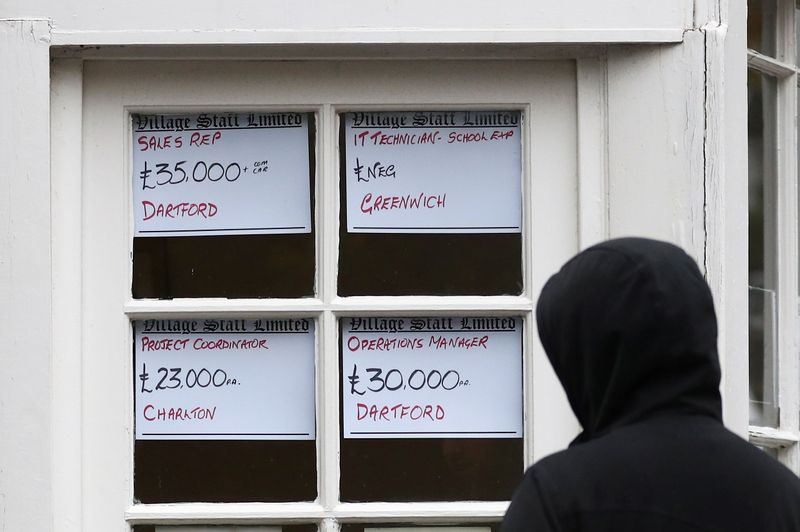LONDON (Reuters) – Britain should do more to help the unemployed find work, and fixing the huge hole in its public finances can wait until a recovery from the COVID-19 pandemic is well under way, the Organisation for Economic Co-operation and Development said.
The world’s sixth-biggest economy was at “a critical juncture” as the crisis threatens to worsen its productivity and inequality problems, and Brexit could also deal a major blow, the watchdog said in an annual report.
“Decisions made now about management of the COVID-19 crisis and future trade relationships will have a lasting impact on the country’s economic trajectory for the years to come,” it said.
Britain’s economy shrank by the most in the Group of Seven nations in the second quarter and the recovery lost momentum in August. Now the government is tightening its coronavirus restrictions, which will slow economy further and cost more jobs.
The OECD forecasts Britain’s economy will slump by 10.1% this year before growing by 7.6% in 2021 when unemployment will average 7.1%, up from 4.5% now.
Finance minister Rishi Sunak is replacing his 50 billion-pound ($65 billion) job protection scheme with narrower support. He is also trying to help the unemployed find jobs in sectors less affected by the crisis.
“Additional spending on active labour market measures are welcome and further increases would help to accompany unemployed workers in their job search and ease adjustment to new working arrangements,” the OECD said.
Britain faces its biggest-ever peacetime budget deficit in 2020 – the Institute for Fiscal Studies think tank estimates it will hit 17% of GDP – and public debt has passed 100% of GDP.
But the OECD said low borrowing costs allowed for more public spending.
“Once the recovery is firmly established, addressing the remaining structural deficit and putting the public debt-to-GDP ratio on a downward path should come to the fore,” it said.
At 33.5%, the UK’s tax-to-GDP ratio remains relatively low compared with many European countries, it said.
Britain could squeeze tax breaks for individuals and businesses, raise property taxes on expensive homes, include pension wealth under inheritance tax and increase social security contributions by the self-employed.
The OECD also said Britain should scrap its generous “triple lock” for determining the annual increase in state pensions.
On Brexit, even a broad trade deal with the European Union would mean Britain’s economy ends up 4.2% smaller than if it had stayed in the bloc because of border checks and the cost of red tape for EU workers.
Streamlining regulations and striking trade deals around the world – two of the positives from Brexit, according to its supporters – would only reduce the drag slightly.
The OECD said the Bank of England had limited scope for more monetary stimulus, though the low level of interest rates gave the government more scope for fiscal stimulus.
Alvaro Pereira, the OECD’s director of country studies, told reporters he did not believe there was a need for the BoE to take rates below zero, an option the central bank is studying for its feasibility.
(Editing by David Milliken)



















